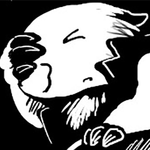- Home
- After Effects
- Discussions
- 3D Camera Tracker Issue: non-tracked layer is movi...
- 3D Camera Tracker Issue: non-tracked layer is movi...
Copy link to clipboard
Copied
Hi amazing Adobe Community,
I'm hoping someone can shed light on what's happening in the video I recorded below. After having used the 3D Camera Tracker > Created null and camera, the null object appears to be tracking as it should. When I parent [the layer I want to be in the laptop screen] to the null, it doesn't do anything regardless of whether it's a 2D or 3D layer. The crazy thing though is when I try to make that layer 3D--before I even parent it to the null, it flips out and moves across the screen in ways it absolutely should not. I'm not seeing any reason for that movement, but maybe I'm missing some sort of fundamental idea here?
Thanks so much for any help you can provide!
 1 Correct answer
1 Correct answer
You got a couple of workflow problems. Just parenting a 3-D layer to your reference null Will not match the position. The proper workflow is make the layer 3-D, Hold down the shift key and parent the new 3-D layer to the null, This will match the position scale rotation and orientation so that the 3-D layer is an exactly the same 3-D space.
It has always worked this way. There is no change. By the way, I never use Nulls, I always place track solids and make them guide layers. That's the only
...Copy link to clipboard
Copied
Please let us know which program you are having problems with. Someone will be along to move this post to the appropriate product forum, where you are more likely to get an answer to your question.
The Using the Community forum is for help in using the Adobe Support Community forums, not for help with specific programs. Product questions should be posted in the associated product community.
Copy link to clipboard
Copied
It's After Effects.
Ok, thanks for the heads up! It's kind of hard to navigate in here. Could not see where else to post issues with programs.
Copy link to clipboard
Copied
Copy link to clipboard
Copied
Thank you, should I repost this one there now, or are you moving it there?
Just wondering if this is for future reference.
Copy link to clipboard
Copied
You got a couple of workflow problems. Just parenting a 3-D layer to your reference null Will not match the position. The proper workflow is make the layer 3-D, Hold down the shift key and parent the new 3-D layer to the null, This will match the position scale rotation and orientation so that the 3-D layer is an exactly the same 3-D space.
It has always worked this way. There is no change. By the way, I never use Nulls, I always place track solids and make them guide layers. That's the only way you can see the tracking when the video is playing at full speed.
After you have used the shift/parent technique you may have to adjust the rotation property and the scale of your replacement layer. Again this is no change from the way camera tracker has always worked .
Copy link to clipboard
Copied
Thank you for the info! I never remember needing to hold shift before, but I appreciate the alternate method!
I'll make sure to create a solid + camera (and make the solid a guide layer) instead of a null + camera in the future.
Copy link to clipboard
Copied
If you move the camera and two surfaces (layers) do not share the same plane, they will not have the same apparent motion. Some people copy and paste position information, but for me, it is always better to stick a tracker solid to the surface I want to match up and make sure that the camera solution is good. I also almost always set an origin and ground plane, then set the first Track Solid and Camera using the same points. This puts the track solid at 0, 0, 0 position. From there you can work out the position of any other surface in the shot. I also always set a comp marker on that frame so I can find the spot in the timeline when the camera is pointing directly at 0, 0, 0.
Copy link to clipboard
Copied
I ended up using your tracker solid solution for a different project last night and the results were immediately so much better and more predictable. Thanks for elaborating here as well! Next step is matching the origin and ground plane.
Copy link to clipboard
Copied
I should have mentioned that I would not have used Camera Tracking for that shot. I would have used what I call the Stabilised Powerpin workflow. It initiates with Mocha AE. It's a lot easier to fine-tune the look and create a believable composite. It is also a lot easier to create any mattes you may need to hide foreground elements. Here's the latest tutorial and an old one that shows how I replaced a TV screen and made it look like it was part of the shot right down to the reflections and the rain.
And the original tutorial before Mocha AE was an Effect. Everything is the same except copying and pasting the data.
Copy link to clipboard
Copied
Amazing, thank you! You sir, are a champion of After Effects and this community. Just subscribed to your channel--what a fantastic reference for the future.
